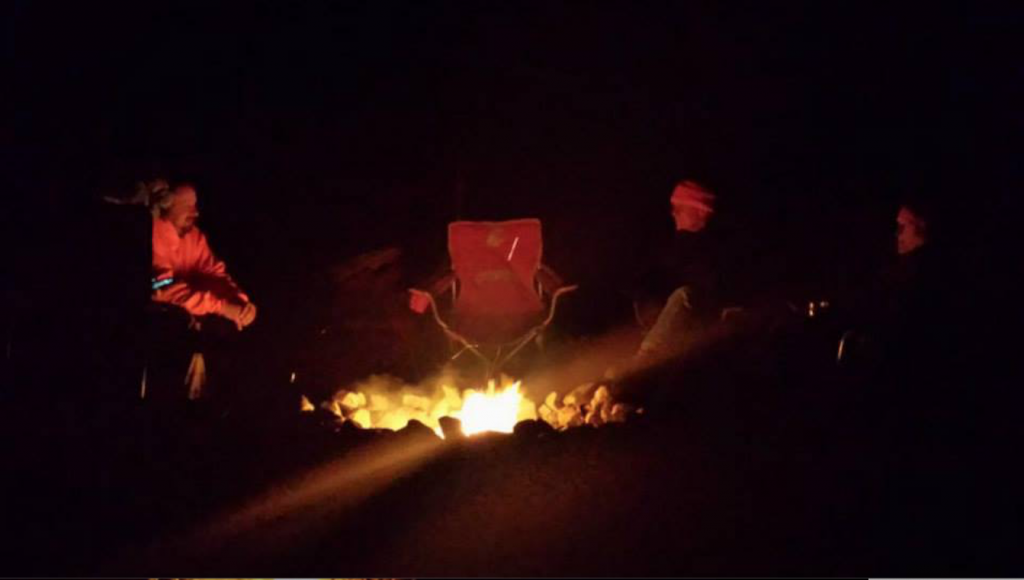WDFW Commission Changes Raise Eyebrows
Alarm bells are going off among some Washington hunters with the news of recent arrivals on the state Fish and Wildlife Commission.

Governor Jay Inslee appointed Fred Koontz of Duvall and Lorna Smith of Port Townsend to six-year terms and while there can be no doubt both are deeply invested in critter issues, together the duo reflect a not-so-subtle and sudden tip from the citizen panel’s traditional mooring that has sportsmen bracing themselves.
Sources expressed worries about potential impacts on hunting, fishing and hatcheries, disappointment about not being consulted on the appointments, and general unhappiness about the combination of the two, but also potential for collaboration in some areas.

Koontz retired in 2017 after a varied career in conservation including with Seattle’s Woodland Park Zoo, while Smith is the executive director of Western Wildlife Outreach, which focuses on coexistence with large carnivores like wolves, grizzlies and other predators, and has worked on ESA issues.
It’s Smith in particular who is generating the most pause.
In recent years her work through WWO has taken a turn from talking about bear awareness at community events to increasingly speaking up on behalf of more stringent protections for wolves and against lethal removals.
That aligns more with the adversarial organizations and individuals, both out-of-state and in-state, that have been launching lawsuit after lawsuit, petition drives and pressure campaigns at WDFW – which is tasked with trying to head off chronic livestock depredations in Northeast Washington, where packs are beyond recovered – and Inslee.
Last fall they got to the governor and he again stepped into the commission’s wheelhouse on predator management and disrupted a hard-fought stakeholder consensus that to reach cost the state a pretty penny in the form of an outside mediator’s services. Bringing Smith and Koontz onto the citizen panel that oversees the agency feels like a reinforcement of that by Inslee.
The duo replace two commissioners whose terms expired at the end of 2020 but the governor’s office may not have vetted them with many hunter or angler groups.
“The Hunters Heritage Council is very disappointed that our community was not contacted during the appointment process, which leaves many questions unanswered,” said organization president Mark Pidgeon. “Why wasn’t the balance process on the Commission followed? This process of having the hunting community, commercial fishing community, recreational community, agricultural/ranching community, and environmental community represented has always been followed.”
Others, realizing they are temporarily outgunned, are reaching out to a national hunting organization for help and looking to the state Senate as a potential backstop.
The Agriculture, Water, Natural Resources & Parks Committee can bring commissioners in for a chat – or a Zoom meeting these days – and issue an up-or-down confirmation recommendation to the full Senate.
While the committee currently has three Democrats, including Chair Kevin Van De Wege, and three Republicans, the Senate has a sharper partisan divide, 29-20 D-R, which makes it a longer shot that members would vote to dismiss Inslee’s choice.
The last time the Senate forced a governor’s hand on a commissioner – if I’m remembering my ancient history – was with the 2013 appointment-pull of Olympia’s David Jennings who was deemed “too much of a polarizing figure” by the then-natural resources chair, Sen. Kirk Pearson, a Republican.
But even if the Senate doesn’t act, just holding a hearing would put the commissioners and their stances on fish and wildlife on the record. In 2012 that helped to flesh out another very controversial choice, Jay Kehne, who turned out to be a solid member.
Longtime Washington gun writer Dave Workman saw the appointment of Smith and Koontz as a chance to remind both where a big chunk of WDFW’s funding comes from.
“It must be incumbent upon fish and wildlife commissioners to remember who pays most of the freight for the agency, and that’s hunters and anglers, and recreational shooters and even boaters through license sales and the federal Pittman-Robertson and Dingell-Johnson funds, along with Wallop-Breaux,” the North Bend deer, elk and grouse hunter said of various Congressional acts. “Perhaps it is time to resurrect the Sportsman’s Rights Coalition, a group consisting of activist hunters and anglers; consumptive outdoorsmen and women who stood up for the resource.”
The coalition was active in the 1980s and showed up in Olympia dressed to hunt and with a few hounds thrown in, according to Workman’s recollection.
In a 2018 story, I reported that fishing and hunting license fees and Pittman-Robertson and Dingell-Johnson Acts excise taxes fuel one-third of WDFW’s operating budget, with sportsmen – along with the general public – also contributing to the other two-thirds that comes via state and federal taxes and electrical bills.
Donations and volunteers with groups like the Rocky Mountain Elk Foundation and other sportsmen’s and fishermen’s clubs add value on top of all that as well, as does that by conservation orgs.
At the same time, with hunter and angler numbers declining over the decades, there have been efforts to expand WDFW’s “tent” and bring in new allies in support of the agency’s overall missions and budget needs. Koontz has been part of that, serving on a pair of WDFW advisory panels – Budget and Policy, and Diversity.
An essay he posted in 2018 also outlined his work to “transform” state wildlife agencies to a wider focus, including doing much more for nongame animals. The piece challenges the status quo of the North American Model of Wildlife Conservation and is off-putting in places to those just as deeply invested in this particular world but coming from the consumptive angle.
Still, given trends – and unless there’s some huge infusion for WDFW from the still-to-be-passed Recovering America’s Wildlife Act in Congress – it’s likely the two worlds will need to collaborate.
As it stands, Inslee has one more commission appointment to make in the near term, a replacement for Dave Graybill, the “fishing magician” of Leavenworth. While that particular position must be filled by an Eastside resident, two guides from west of the crest are actively angling for a seat.
Larry Carpenter’s Western Washington term is officially up, but as I understand it, Inslee is choosing to keep the retired Mount Vernon boat dealer and chair of the commission on for awhile longer, a wise move at an unsettled time.
